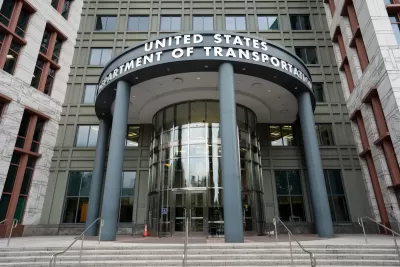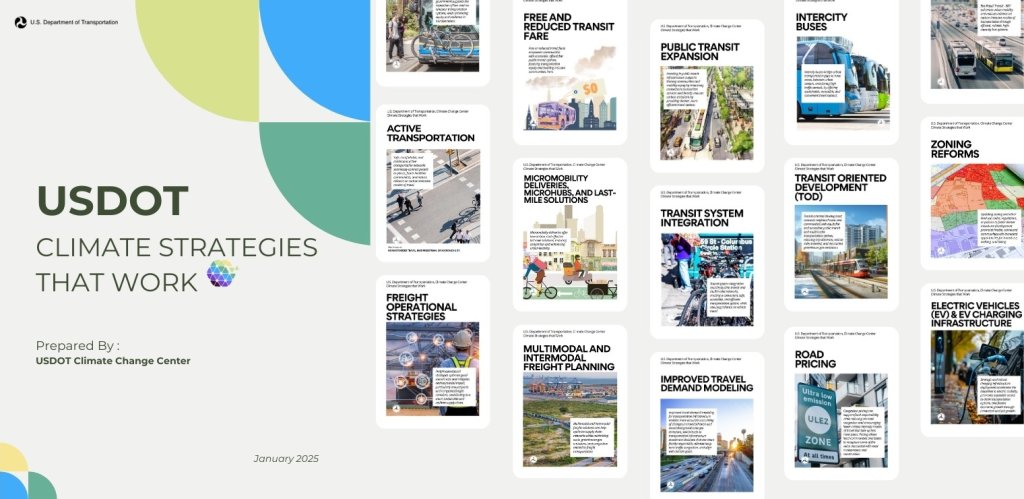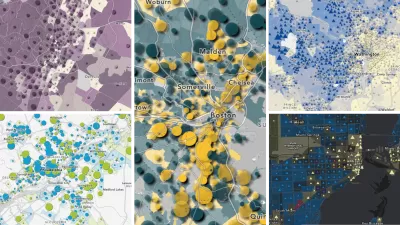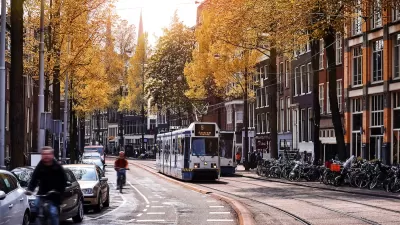The new U.S. federal administration may eliminate useful information sources. Planners should download and preserve key documents and datasets.

Bakers need flour and carpenters need lumber; what do planners need? Information of course! Data sets, reports, and maps are our key inputs. Some of these are now under threat.
Planners have reasons to be concerned about the new U.S. administration. In its first days it has shut down many federal websites, and that trend is likely to filter down to many federal agency pages, including some with basic planning information. I recommend that planners download and preserve documents and data sets that may be useful in the future. If necessary, we can pass it around like underground Samizdat literature during the Soviet era.
For example, the US Department of Transportation's Climate Change Center recently produced a Climate Strategies that Work Playbook website that provides guidance on evaluating and implementing the 27 transportation emission reduction strategies listed below. The entire set is also available in one large document.
- Active Transport
- Bus Rapid Transit
- Commuter Benefits
- Coordinated Transportation Planning
- Electric Vehicle Charging Infrastructure
- Free and Reduced Transit Fare
- Freight Digital Solutions and Emerging Technologies
- Freight Operational Strategies
- Heavy-Duty Diesel Engine Retrofit and Replacements
- Idle Reduction Technologies and Strategies
- Improved Travel Demand Modeling
- Intelligent Transportation Systems
- Intercity Bus
- Intercity Passenger Rail
- Micromobility Deliveries, Microhubs, and Last-Mile Solution
- Multimodal and Intermodal Freight Planning
- Off-Peak Delivery
- Parking Reforms
- Public Transit Expansion
- Ridesharing and Carsharing
- Road Pricing
- Shared Mobility and Microtransit
- Transit System Integration
- Transit-Oriented Development (TOD)
- Trip Planning Tools and Modal Integration
- Vehicle Energy Efficiency Improvements
- Zoning Reforms
This is useful information, and many of these strategies support conservative goals such as government cost efficiency, affordability, consumer sovereignty and efficient pricing, as discussed in my new report, Progressive Planning in Ideologically Conservative Communities, but I fear that the new administration will shut down the entire website simply because it is framed in terms of emission reduction goals.
I have a personal reason to hope that this website is preserved, since many of these documents cite my research, particularly a report, Planning for Quality of Life: Considering Community Cohesion and Related Social Goals, which was previously called Community Cohesion as a Transport Planning Goal. It analyzes quality of life (social) goals, describes ways to evaluate them, and identifies strategies that can help achieve these goals and improve overall livability. Both conservatives and liberals have good reasons to support these goals.
A basic principle of good planning is to hope for the best but prepare for the worst, which for planners means losses of the information needed for our jobs. Whenever you use a government website consider downloading and saving any documents and datasets that you or colleagues may want in the future.
What do you think? How can planners respond to harmful ideological attacks?

Maui's Vacation Rental Debate Turns Ugly
Verbal attacks, misinformation campaigns and fistfights plague a high-stakes debate to convert thousands of vacation rentals into long-term housing.

Planetizen Federal Action Tracker
A weekly monitor of how Trump’s orders and actions are impacting planners and planning in America.

Chicago’s Ghost Rails
Just beneath the surface of the modern city lie the remnants of its expansive early 20th-century streetcar system.

Bend, Oregon Zoning Reforms Prioritize Small-Scale Housing
The city altered its zoning code to allow multi-family housing and eliminated parking mandates citywide.

Amtrak Cutting Jobs, Funding to High-Speed Rail
The agency plans to cut 10 percent of its workforce and has confirmed it will not fund new high-speed rail projects.

LA Denies Basic Services to Unhoused Residents
The city has repeatedly failed to respond to requests for trash pickup at encampment sites, and eliminated a program that provided mobile showers and toilets.
Urban Design for Planners 1: Software Tools
This six-course series explores essential urban design concepts using open source software and equips planners with the tools they need to participate fully in the urban design process.
Planning for Universal Design
Learn the tools for implementing Universal Design in planning regulations.
planning NEXT
Appalachian Highlands Housing Partners
Mpact (founded as Rail~Volution)
City of Camden Redevelopment Agency
City of Astoria
City of Portland
City of Laramie































